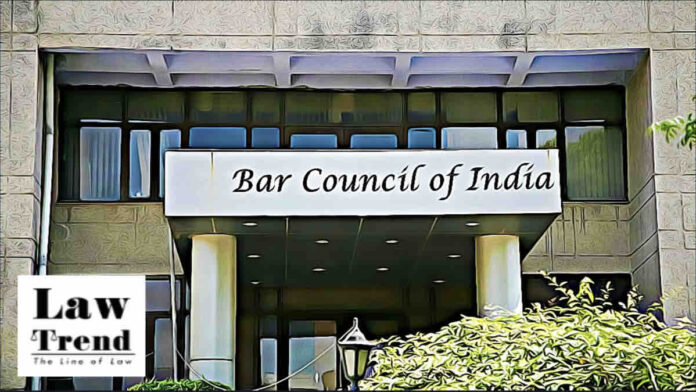The Bar Council of India (BCI) on Wednesday appreciated the introduction of new criminal justice laws to replace outdated colonial-era statutes, and appealed to the government to encourage continuous discussion for addressing various ambiguities.
In a statement, the top lawyers body said it acknowledges the positive features embedded in the three new laws – Bharatiya Nyaya Sanhita, Bharatiya Nagrik Suraksha Sanhita and Bharatiya Sakshya Adhiniyam.
“These criminal laws aim to replace the existing body of criminal laws in India…. The BCI appreciates removing colonial and outdated criminal laws, such as the (section on) sedition, which fosters a more inclusive and democratic legal environment by respecting freedom of expression,” it said.
It said the issues of “effective implementation” and “victim support” would be critical in the introduction of provisions addressing contemporary challenges, including the categorisation of mob lynching as a separate offence.
Underlining that the offence of mob lynching encompassed hate crimes based on race, caste, community, sex, language, or place of birth, the BCI said, “Sensitivity training for police and judiciary could help ensure unbiased and trauma-informed handling of such cases.”
“The BCI notes and appreciates the government’s decision to refrain from reintroducing adultery as a gender-neutral offence, aligning with the principles of equality and non-discrimination,” it said.
Acknowledging the “improvements regarding the registration of FIRs” by police officers regardless of the location of the offences, the BCI commended the “emphasis on utilising forensic methods in investigations and incorporating videography in searches and seizures.”
It, however, cautioned against over-reliance on forensic evidence and stressed the need for investigative skills and victim protection.
The BCI further appreciated the parliamentary standing committee’s “thorough examination” of the new criminal laws.
“However, recognising the importance of ongoing dialogue and refinement in legal procedures, the Bar Council of India encourages continuous discussions to address any ambiguities, such as the clarification on the permissible duration of police custody beyond the 15-day limit,” it said.
Underscoring that the legislative process is an ongoing endeavour, the BCI urged the central government to “remain open to constructive feedback and amendments that further strengthen the legal framework.”
Also Read
It also appreciated the leadership of Prime Minister Narendra Modi and Union Home Minister Amit Shah for ushering in a progressive era of criminal justice reform.
Their commitment to removing colonial and outdated laws, fostering inclusivity, addressing contemporary challenges, and engaging in thorough legislative scrutiny reflects a dedication to justice and a resilient legal framework for India’s future, the BCI said.
“It is hereby resolved that the BCI, in its commitment to justice, supports the enactment of the three Acts, understanding their positive contributions, while advocating for a continual dialogue to refine and improve the criminal justice system in India,” it said.
These new laws – Bharatiya Nyaya Sanhita, Bharatiya Nagrik Suraksha Sanhita and Bharatiya Sakshya Adhiniyam – will replace the Indian Penal Code, the Code of Criminal Procedure and the Indian Evidence Act, respectively.




